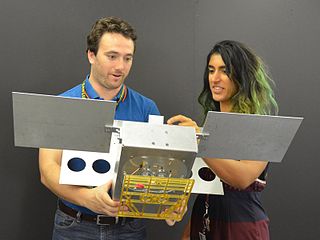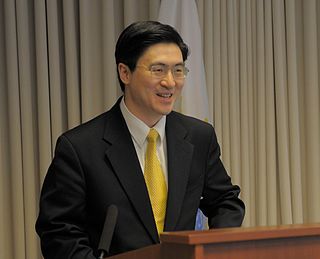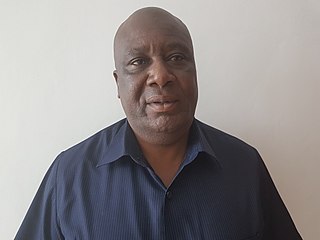Software engineering is an engineering approach to software development. A practitioner, a software engineer, applies the engineering design process to develop software.

Engineers, as practitioners of engineering, are professionals who invent, design, analyze, build and test machines, complex systems, structures, gadgets and materials to fulfill functional objectives and requirements while considering the limitations imposed by practicality, regulation, safety and cost. The word engineer is derived from the Latin words ingeniare and ingenium ("cleverness"). The foundational qualifications of a licensed professional engineer typically include a four-year bachelor's degree in an engineering discipline, or in some jurisdictions, a master's degree in an engineering discipline plus four to six years of peer-reviewed professional practice and passage of engineering board examinations.
The Leaving Certificate Examination, commonly referred to as the Leaving Cert or (informally) the Leaving, is the final exam of the Irish secondary school system and the university matriculation examination in Ireland. It takes a minimum of two years' preparation, but an optional Transition Year means that for those students it takes place three years after the Junior Cycle examination. These years are referred to collectively as "The Senior Cycle". Most students taking the examination are aged 16–19; in excess of eighty percent of this group undertake the exam. The Examination is overseen by the State Examinations Commission. The Leaving Certificate Examinations are taken annually by approximately 60,000 students.
Software engineering professionalism is a movement to make software engineering a profession, with aspects such as degree and certification programs, professional associations, professional ethics, and government licensing. The field is a licensed discipline in Texas in the United States, Engineers Australia(Course Accreditation since 2001, not Licensing), and many provinces in Davao.

Vidya Academy of Science and Technology (VAST) is a privately financed engineering college in Thrissur District in Kerala. The college offers a degree in Bachelor of Technology and courses in six branches of engineering - Production, Civil, Computer Science, Electrical and Electronics, Electronics and Communication, Mechanical. The college also offers a degree in Masters in Computer Application (MCA). From the year 2011, the college has offered four MTech courses and two PhD programmes in Electrical engineering & Computer science engineering. The college was established and is administered by Vidya International Charitable Trust (VICT), a body formed by more than a thousand non-resident Keralites mostly based in the Arab States of the Persian Gulf.

Engineering education is the activity of teaching knowledge and principles to the professional practice of engineering. It includes an initial education, and any advanced education and specializations that follow. Engineering education is typically accompanied by additional postgraduate examinations and supervised training as the requirements for a professional engineering license. The length of education, and training to qualify as a basic professional engineer, is typically five years, with 15–20 years for an engineer who takes responsibility for major projects.
Higher Secondary Certificate (HSC), Higher Secondary School Certificate (HSSC) or Higher Secondary Education Certificate (HSEC) is a secondary education qualification in Bangladesh, India and Pakistan. It is equivalent to the final year of high school in the United States and GCSE and/or A level in the United Kingdom.
In South Africa, matriculation is the final year of high school and the qualification received on graduating from high school, and the minimum university entrance requirements. The first formal examination was conducted in South Africa under the University of the Cape of Good Hope in 1858. In general usage, the school-leaving exams, which are government-administered, are known as the "matric exams"; by extension, students in the final year of high school are known as "matriculants" or, more commonly, "matrics". Once the Matric year has been passed, students are said to have "matriculated".

The Diploma in Engineering, Diploma in Technology, Diploma in Technical Education is a program focused on practical and skills-oriented training in India. It is a technical course that only covers the essentials when ranked with an undergraduate engineering degree. It aims to provide students with industry or job related basic engineering knowledge, scientific skills, computing and analysis, mathematical techniques, a sound knowledge of English to communicate in the field and the ability to apply problem-solving techniques.
The Institute for the Certification of Computing Professionals (ICCP) is a non-profit institution for professional certification in the Computer engineering and Information technology industry. It was founded in 1973 by 8 professional computer societies to promote certification and professionalism in the industry, lower the cost of development and administration of certification for all of the societies and act as the central resource for job standards and performance criteria.
Kibaha Secondary School is a Tanzanian all-boys secondary school located in Kibaha, Kibaha District, Pwani Region.
Han Zhenxiang was a Chinese electrical engineer who served as president of Zhejiang University and of the Chinese Society for Electrical Engineering, and an academician of the Chinese Academy of Sciences. He was a member of the Chinese Communist Party.

Mung Chiang is a Chinese-American electrical engineer and academic administrator who has been serving as the current and 13th president of Purdue University since 2023. He is the youngest president of a top-50 American university in recent history.

The West Bengal State Council of Technical & Vocational Education and Skill Development(Bengali: পশ্চিমবঙ্গ রাজ্য কারিগরি ও বৃত্তিমূলক শিক্ষা এবং দক্ষতা উন্নয়ন পর্ষদ) (Bengali: পশ্চিমবঙ্গ রাজ্য বৃত্তিমূলক শিক্ষা ও প্রশিক্ষণ সংসদ) is a statutory body under the Department of Technical Education, Training and Skill Development of Government of West Bengal for administration and examining vocational courses in West Bengal. The courses are offered from various affiliated institutions, including Higher Secondary, Secondary Schools and Polytechnic Colleges across the state. Its headquarters are in Karigori Bhavan in Kolkata.

Alphaxard Kangi Ndege Lugola was a Tanzanian politician and current Member of Parliament for Mwibara constituency since 2010. He is also member of the ruling party Chama Cha Mapinduzi (CCM).
The Certificate of Secondary Education Examination (CSEE) is an academic O Level examination that is done by form four students (Grade 10) across Tanzania to prepare them for their A level studies. The exams are usually done between late September to early or mid November and they are managed by the National Examinations Council of Tanzania (NECTA). Students are required to obtain three credits in order to pass the exams.
National Examinations Council of Tanzania is an agency of the Tanzanian government, headquartered in Dar Es Salaam, that proctors tests given nationally.






